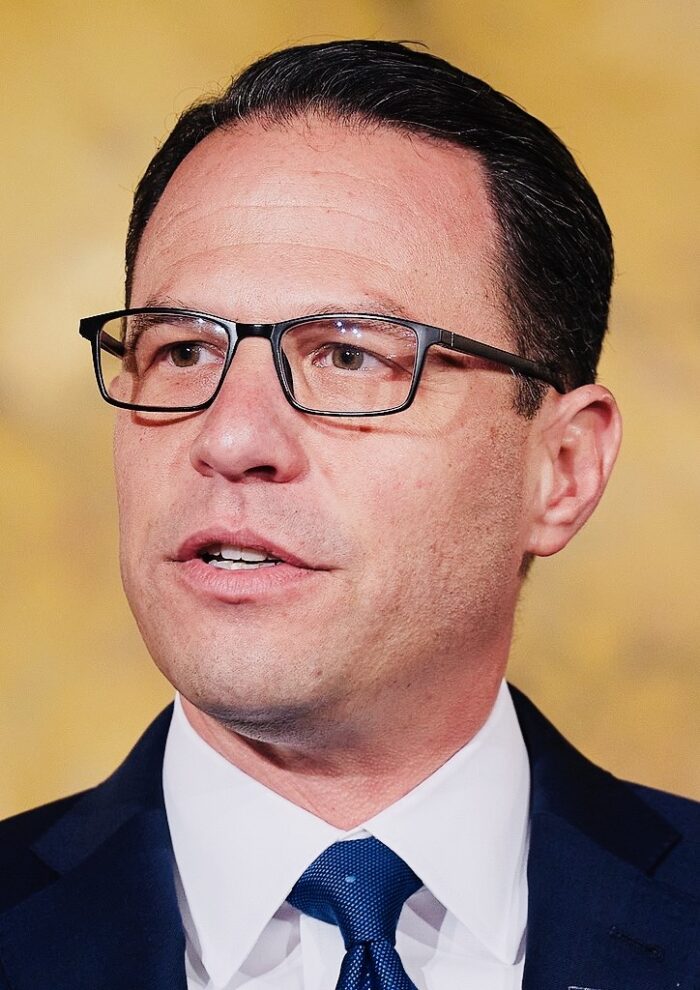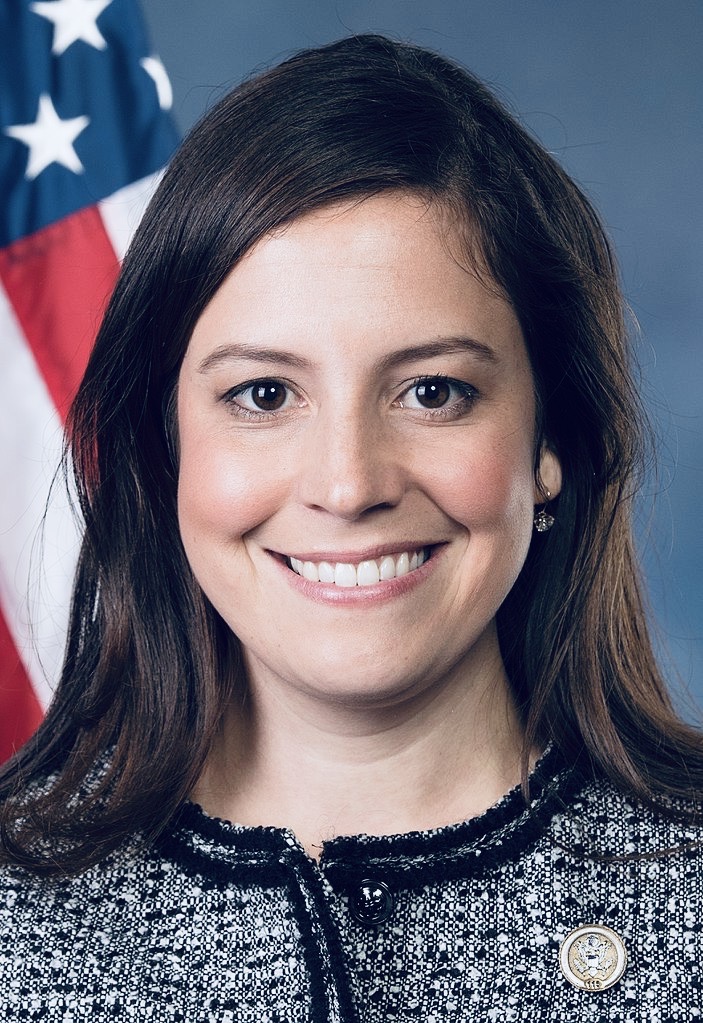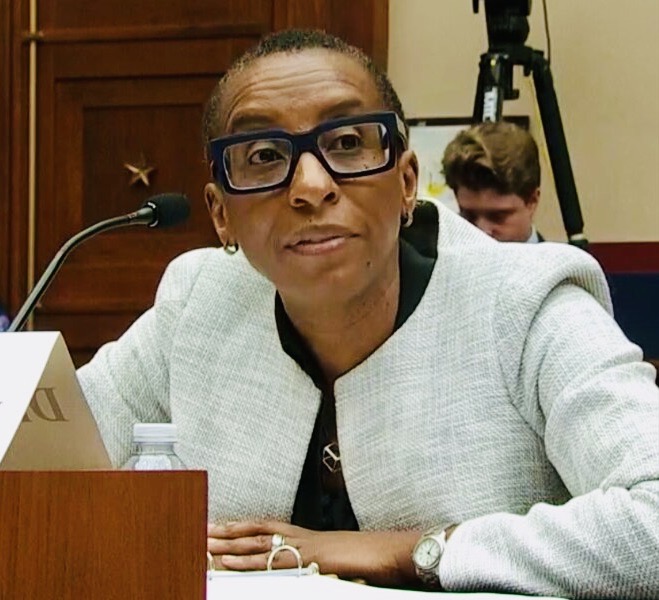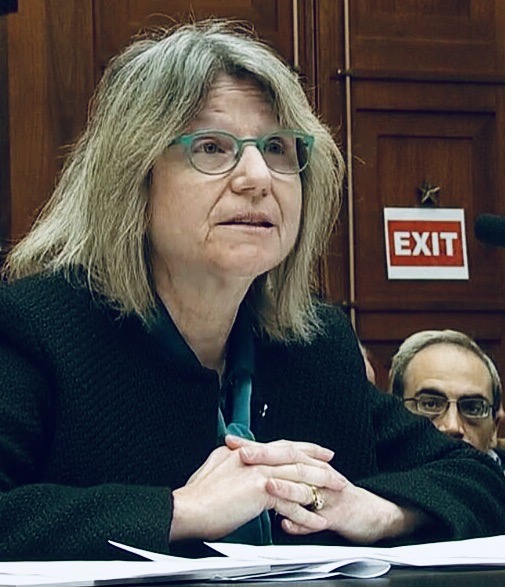Is it so hard to condemn genocide unequivocally?
Shockingly enough, Elizabeth Magill, Claudine Gay and Sally Kornbluth, the presidents of the University of Pennsylvania, Harvard University and the Massachusetts Institute of Technology, had various degrees of difficulty responding to that straightforward question with a simple yes or no answer.
Ar a congressional hearing in Washington on December 5, Representative Elise Stefanik, a New York state Republican, asked the trio whether calling for the genocide of Jews would constitute harassment under their university’s code of conduct.
Astonishingly, they replied under oath that the answer depended on “context,” implying that antisemitism and genocide might be justified under certain circumstances.
To give them the benefit of the doubt, they were surely not in favor of genocide. But in light of their often evasive and formulaic answers, indignation flared from the Biden administration on down.
Andrew Bates, a White House spokesman, said, “It’s unbelievable that this needs to be said: calls for genocide are monstrous and antithetical to everything we represent as a country.”
Virginia Foxx, the chairwoman of a House of Representatives committee, opened an investigation into the three institutions, criticizing them for failing to tackle “rampant antisemitism” on their campuses since Hamas’ attack on Israel on October 7 and Israel’s subsequent invasion of the Gaza Strip.

The governor of Pennsylvania, Josh Shapiro, declared, “It should not be hard to condemn genocide, genocide against Jews, genocide against anyone else,” he said in a reference to Magill. “I’ve said many times, leaders have a responsibility to speak and act with moral clarity, and Elizabeth Magill failed to meet that simple test. There should no nuance to that — she needed to give a one-word answer.”
Albert Bourla, the chief executive officer of Pfizer, the pharmaceutical company whose Covid-19 vaccine saved countless lives during the recent pandemic, was equally outraged. In a post on X, he wrote that he was “ashamed” of Magill’s testimony, justifiably branding it as “one of the most despicable moments in the history of U.S. academia.”
In the opinion of New York Times columnist Michelle Goldberg, “all three presidents acquitted themselves poorly, appearing morally obtuse and coldly legalistic. It was a moment that seemed to confirm many people’s worst fears about the tolerance for Jew hatred in academia.”
Magill, Gay and Kornbluth were summoned to testify at Congress after a series of unnerving and disquieting incidents at elite American universities.
During this period, Palestinian supporters vocally justified Hamas’ mass murder of Israelis on October 7. Furthermore, they belittled, harassed and intimidated Jewish students who support Israel and endorse its defensive war of necessity against Hamas in Gaza.
At times, the shrill and strident rhetoric of pro-Palestinian students spilled into the realm of tacit and explicit antisemitism. More often than not, a number of university presidents were conspicuously silent as these noxious verbal onslaughts unfolded, causing considerable dismay and distress among alumni and financial supporters.
In the face of these ugly incidents, the U.S. Congress intervened, with Stefanik, a Harvard graduate, asking the toughest questions during a four-hour hearing.

Stefanik’s grilling of Magill — a lawyer who joined the university last year with a promise to promote free speech on campus — was especially revealing .
“Does calling for the genocide of Jews violate Penn’s rules or code of conduct, yes or no?” Stefanik asked Magill. To which Magill replied, “If the speech turns into conduct, it can be harassment.”
Stefanik pressed on. “I am asking, specifically: Calling for the genocide of Jews, does that constitute bullying or harassment?”Magill replied, “If it is directed and severe, pervasive, it is harassment.”
Stefanik responded: “So the answer is yes.” Magill said, “It is a context-dependent decision, congresswoman.” Stefanik exclaimed: “That’s your testimony today? Calling for the genocide of Jews is depending upon the context?”
Facing sharp criticism and demands for her resignation, Magill retreated — promising to launch a process to clarify and evaluate the university’s policies regarding speech on campus, denouncing the advocacy of genocide against Jews as “evil, plain and simple,”and apologizing for her mealy-mouthed answers.
“In that moment, I was focused on our university’s longstanding policies aligned with the U.S. Constitution, which is say that speech alone is not punishable,” she said in a video. “I was not focused on, but I should have been, on the irrefutable fact that a call for genocide of Jewish people is a call for some of the most terrible violence human beings can perpetrate.”
She added, “In my view, it would be harassment or intimidation.”
When Gay was asked the same questions as Magill about genocide, she lamely said that the answer “depends on the context.”

To alumnus and university donors like Bill Ackman, an extremely successful hedge fund manager, her reply was outrageous. Stung by his reaction, she issued a new statement on the following day.
It read: “There are some who have confused a right to free expression with the idea that Harvard will condone calls for violence against Jewish students. Let me be clear. Calls for violence or genocide against the Jewish community, or any religious or ethnic group are vile, they have no place at Harvard, and those who threaten our Jewish students will be held to account.”
Only Kornbluth emerged fairly unscathed from her encounter with Stefanik.
“I have not heard calling for the genocide of Jews on our campus,” said Kornbluth.

“But you’ve heard chants for intifada,” Stefanik interjected, alluding to the first and second Palestinian uprisings in the Israeli-occupied West Bank and the Gaza Strip in 1987 and 2000.
“I’ve heard chants which can be antisemitic depending on the context when calling for the elimination of the Jewish people,” Kornbluth replied.
Judging by this disagreeable congressional episode, American university presidents need to be far more alert to and far less tolerant of hate speech on campus. If they cannot address such issues in a strong, timely and consistent manner, and thereby set an example for students to follow, they should resign.
As for Palestinian students and their allies, they have every right to rally around their cause, but they must be very careful not to cross red lines into the dark zone of racial hatred/animosity under the rubric of progressivism.
Free speech is a privilege that should not be abused, not now or tomorrow. In the case of Palestinians and their fellow travellers on university campuses, free speech is not and never has been a licence for defaming Jews and calling for the destruction of Israel.
They should remember that the next time they mount a rally.
